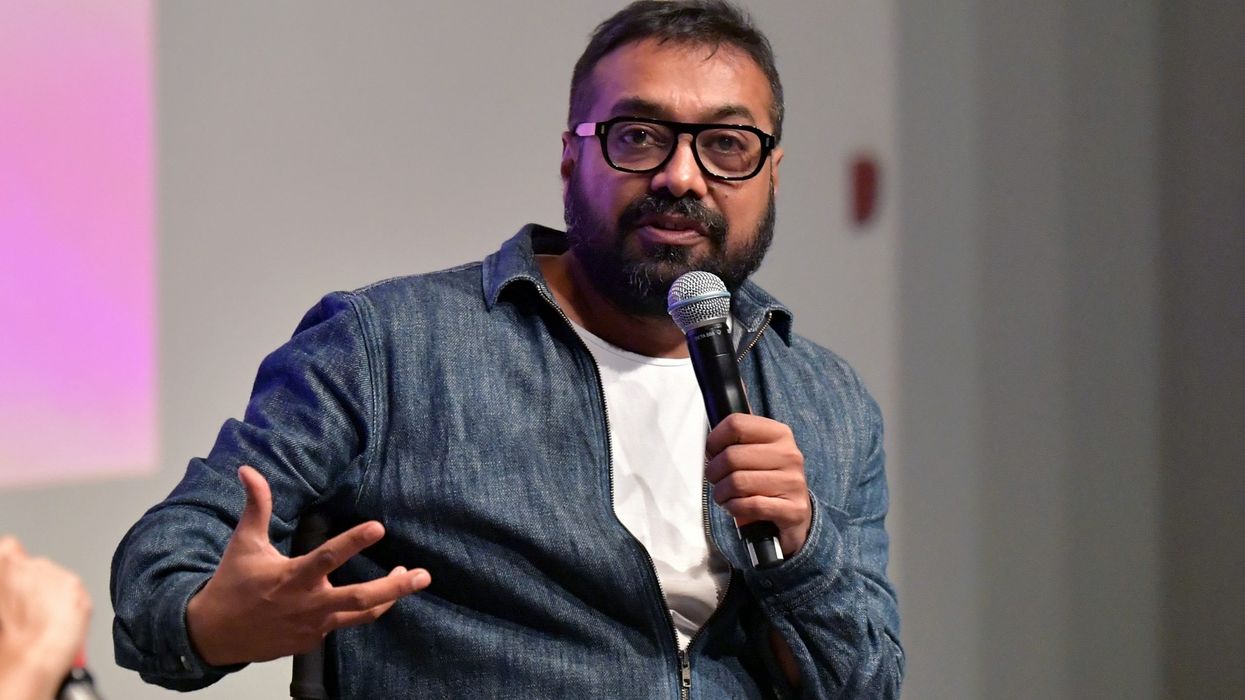Anurag Kashyap, whose neo-noir thriller Kennedy is set to premiere at midnight on Wednesday at the 76th Cannes Film Festival, believes that the current upswing in independent cinema on the subcontinent is being fuelled by fearless young producers willing to put their money where their mouth is.
"It is a new crop of producers who have made all the difference," the Mumbai-based filmmaker said as he kicked off a panel discussion in the Canadian Pavilion here on the theme of 'South Asian Stories in a Global Film Market'.
"They have made it possible for a stream of remarkable independent films to be made," he added.
Canadian-born director-writer-producer Fawzia Mirza said the gradual chipping away at barriers has been a key stimulus for the new kind of cinema that is today emerging from South Asia.
"I think there are sometimes barriers and limitations, but it is beautiful that as a Canadian and an American I have crossed many boundaries. I would like to cross the India-Pakistan boundary a lot, too," she added.
"In the current film I am in post on (Me, My Mom & Sharmila) Sharmila Tagore and "Mere Sapnon Ki Rani" (song from 'Aradhana') are a major touchstone. In my last feature (2017's Signature Move), Shabana Azmi played my mother," said Mirza.
Talking of cultural cross-pollination, New York-based Bangladeshi-origin film producer Anadil Hossain said: "It was Bollywood that gave me my first entry into Hollywood."
Among her American production credits are Wes Anderson's The Darjeeling Limited and Doug Liman's Fair Game. "This year," she said, "is the 20th anniversary of the first Bollywood film that I was a part of, Kal Ho Na Ho, directed by Nikhil Advani."
"It is wonderful to see incredible new filmmakers come up from the subcontinent. They are opening up a new way for us. It is great to see the expansion and the growth although it is also true that we still have a long way to go," said Hossain, whose credits include Mira Nair's The Namesake and The Reluctant Fundamentalist.
Zarrar Kahn, director of the Directors Fortnight title In Flames, said he has been working in Karachi for the last 10 years.
"In Pakistan, Bollywood films are banned but we love to consume them. They were so larger than life that I was like we can never make those films. They are out of scale of what is possible," he said.
"Watching the films of Anurag Kashyap gave us the palette and the landscape for films that we could make in Karachi. I am grateful to him for creating that kind of cinema and blazing that trail," Kahn added.
On his part, Kashyap credited filmmakers such as Mira Nair, Deepa Mehta, Gurinder Chadha, and Shekhar Kapur for showing the way.
"Without what they achieved we would not even attempt what we are making," he said.
On the subject of making films under growing restrictions, Kashyap said: "The best of Iranian cinema that we saw came out at the most difficult times. Every time I lose hope, I go and look at those films. If they can do it, what are we complaining about? I genuinely think the best of our creativity comes out in adversity."
"In Flames," Kashyap said, "is so much more than a moody horror film. It talks about society, pulls out everything, and shows it bare naked. That hits you so hard in the gut."
He added: "I am a genre film freak. Genres evolved as a response to all kinds of repression. What were zombies if not Nazis?"




